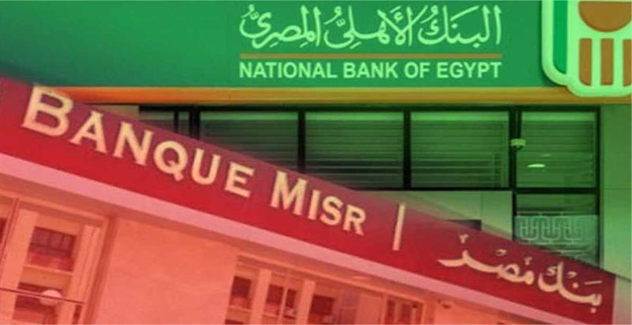
The National Bank of Egypt (NBE) and Banque Misr on 4 January 2023 issued new one-year maturity saving certificates with a 25 percent yield after one year, the highest yield on record, according to Al-Ahram.
The move comes as the local market anticipates a devaluation of the Egyptian pound for the third time in recent months, following the approval of a new $3 billion loan programme from the International Monetary Fund (IMF), which took place in December.
Banque Misr announced on Wednesday that they will be offering a one-year savings certificate with a 25 percent interest rate.
Also, the National Bank of Egypt (NBE), the country’s largest public lender, has issued a one-year savings certificate with a high interest rate of up to 25 percent starting from today, according to the NBE statement announced on Wednesday.
However. the conditions are that the funds are to be spent at the end of the period, or 22.5 percent interest rate to be spent monthly.
Banque Misr said, in a statement, on Wednesday said that this certificate has been available since Wednesday, in all the bank’s branches and all the bank’s e-channels.
It should be noted that the Central Bank of Egypt raised the interest rate by 3% on deposits and lending at the last meeting of the Monetary Policy Committee in 2022.
Egypt’s central bank hiked overnight interest rates by 300 basis points on December 22, in an attempt to curb inflation rates.
The CBE’s Monetary Policy Committee (MPC) raised the deposit rate to 16.25 percent and its lending rate to 17.25 percent.
Why?
Economists said that Banque Misr’s announcement on Wednesday of a one-year savings certificate with 25 interest rate will help to curb inflation.
However, the conditions are that the funds are to be spent at the end of the period, or 22.5 percent interest rate to be spent monthly.
Economic researcher Mohamed Mahmoud Abdel Rahim explained that new high-interest certificates are often issued as a complementary measure to raising interest rates by the Monetary Policy Committee of the Central Bank of Egypt, to combat rising inflation and absorb liquidity.
However, there are many negative effects for raising the interest rate in this way, especially on direct investment, as there is a guaranteed return without any risks of up to 25 percent annually, at a time when there are many investments that do not reap profits that reach these rates, Abdel Rahim added.
Muhammad Hani, a Twitter user, commented on this saying: What is the business that you can engage in or invest your money in to bring you 25% net profit every year? What investment can be made in the country to give you this rate? By God, I don’t understand where we are going.
Economic observers say raising the interest rate on the saving accounts in face has negative effects on economy, not vice versa.
Other observers believe that the main cause of the current inflation is resulting from rising costs, not just the money supply, and therefore the treatment should not be a large increase in the interest rate only.
EGP floating
The Egyptian pound fell during Thursday’s trading to new record levels, continuing its continued decline against the dollar, against the backdrop of a decision by the Central Bank of Egypt to float the pound for the third time in less than a year.
The exchange rate of the Egyptian pound, in official bank transactions, exceeded the barrier of 27 pounds per dollar, which is its lowest level ever in the official market, while its price in some parallel market transactions, “black market”, exceeded the barrier of 40 Egyptian pounds per dollar.
Hours after the two largest government banks in Egypt (NBE and Banque Misr) announced issuance of new a one-year savings certificate with a 25 percent interest rate, while the Central Bank of Egypt allowed a new downward cycle for the local currency, “which economists considered a third flotation of the Egyptian pound since March 21, 2022, and the fourth flotation since November 2016.



